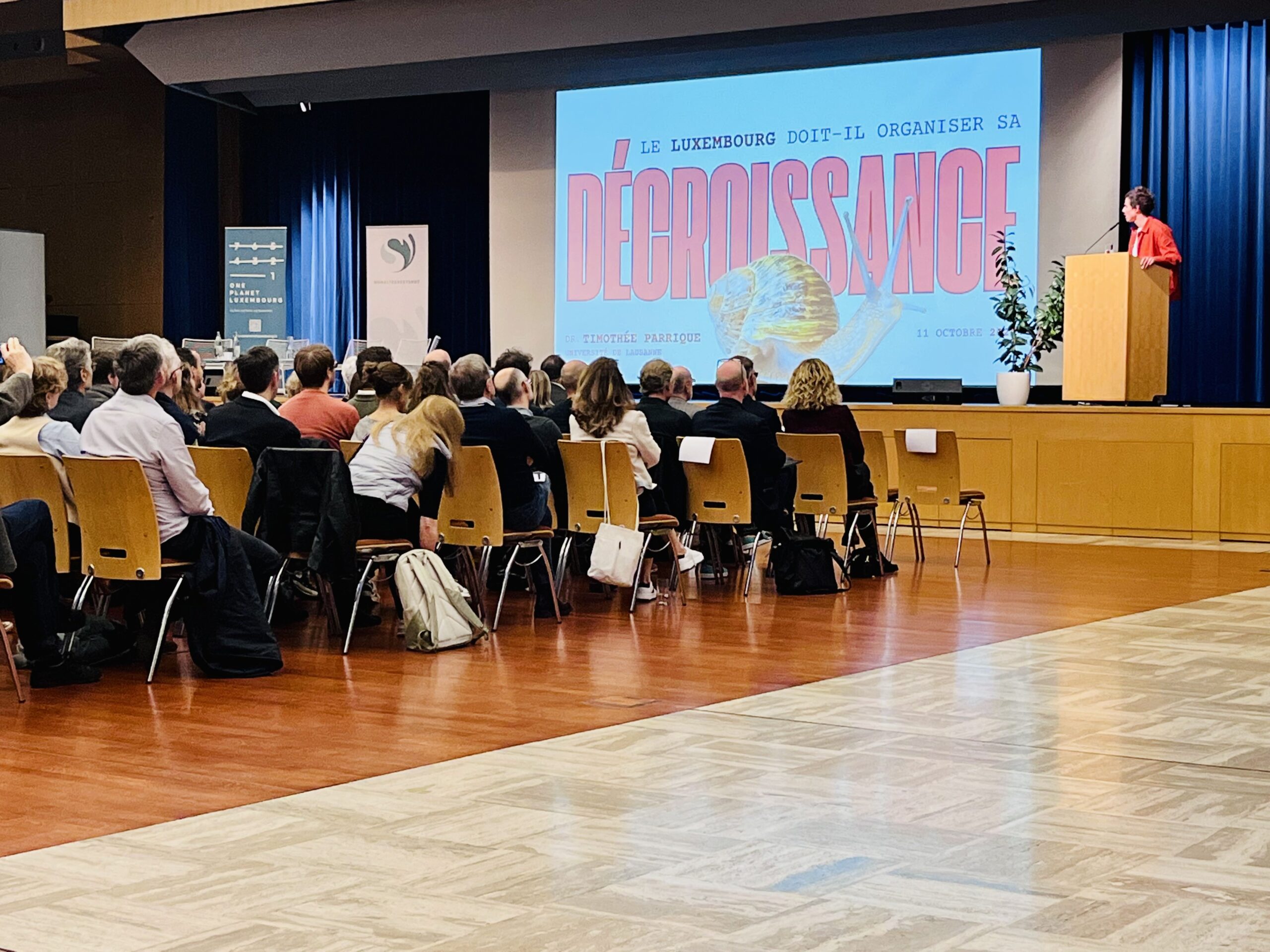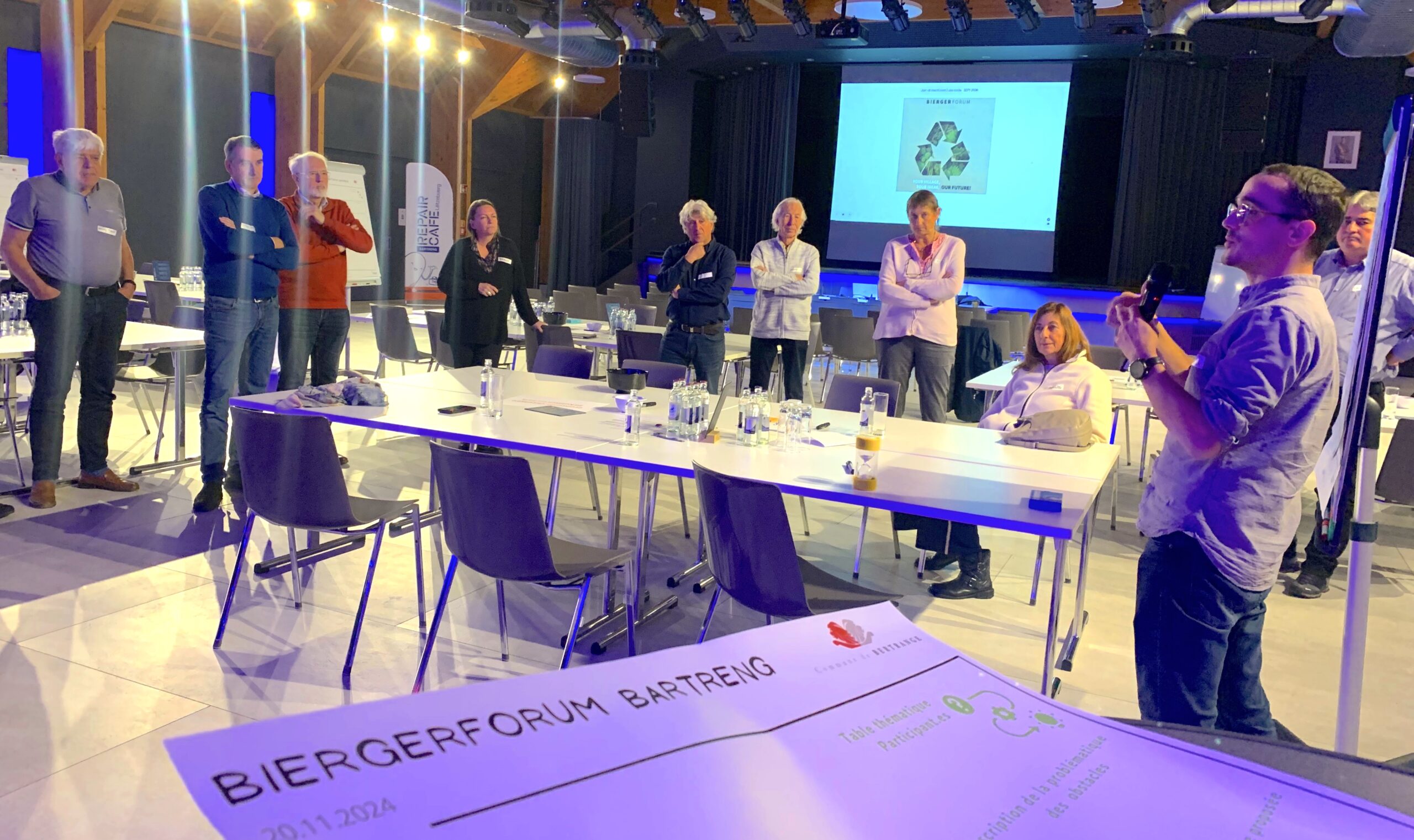Should Luxembourg organize its degrowth?
3 min reading

With this conference title on the occasion of the 20 years of Nohaltegkeetsrot (CSDD)French researcher Thimothée Parrique theUniversity of Lausanne made a (notable) appearance in Luxembourg.
Since its given in front of a packed house (350 people), we can say that the term "decrease" is no longer an impossible word to pronounce in the Grand Duchy. Far from the fantasies of some who think it's all about economic apocalypse, the economist defines degrowth as "a reduction in production and consumption to lighten the load democratically planned ecological footprint in a spirit of solidarity. social justice and concern for the well-being". At the conference on Professor Christian Schulz (UniLu) shared a succinct analysis of the Grand Duchy's current dependence on GDP growth, for finance its lifestyle, pensions, infrastructure...
In contrast to green growth, which relies heavily on ecotechnologies, degrowth is based on theavoidance, on all resource we are not going to consume at all. For a country like Luxembourg, which has an ecological footprint of eight per cent. planets, the regime will have to be efficient and consistent, an agenda it will This will require concerted planning. In particular, it will be necessary to which sectors the company will need most, and what we can do with them. easy to pass over, which priorities to focus on to get out of obesity fast and programmed obsolescence.
During the evening questions from the public were numerousWhich sector to start with, what processes to engage with decision-makers and citizens, how to motivate public and private players, how to avoid the rebound effect, and how not to aggravate social injustice? A public that turned out to what extent there is a discrepancy between the declining and the those of denial in the face of a planetary emergency that requires immediate a planned exit from the current devastating economic model.
A question that interests us at réseau da la transition à Luxembourg (including CELL) is: given the institutions Luxembourgers will need time to adjust to a slowdown of one year. economy based onmore and more"how citizens will be to propose coherent, concrete and inclusive paths? And however, the tracks are not new: divest its money from ecocide projectsWe are committed to the common good in terms of housing, of food, energy and money, as well as launching citizens' assemblies, relaunch local currencies and set up a transitional income to encourage emerging activities in the societal transition. If this is on the the transition, are we going to get there quickly enough and with enough magnitude to return below the ceiling of planetary limits while respecting the social floor? I look forward to hearing from you concrete paths!
Read more "Slow down or perish - The economics of degrowth"by Timothée
Parrique and published in 2022 by Seuil.
86575 vues
0 comments










